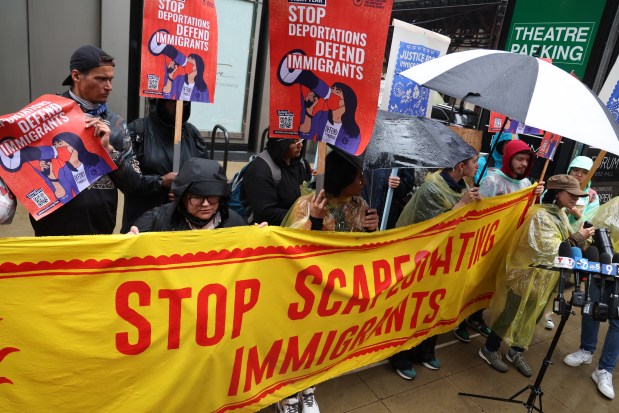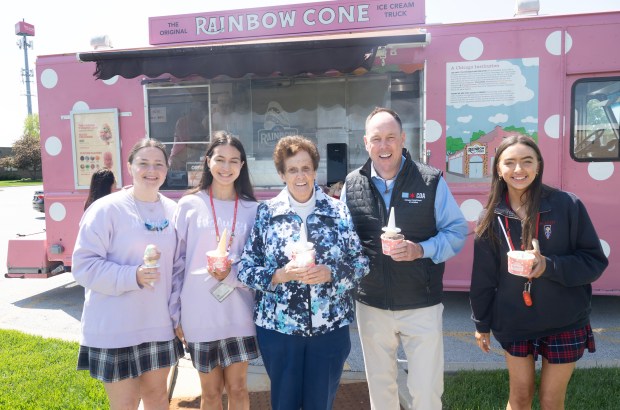A panel featured at a Healing Illinois forum over the weekend in Aurora, hosted by the Empowerment Hope Community Organization (ECHO), tackled how activism, advocacy and anti-racism can help overcome the trauma Black communities have gone through and promote healing.
“Those are critical to addressing previous harms and current harms that have disadvantaged a variety of vulnerable populations,” said Nicholas Richard-Thompson, with the Aurora Participatory Democracy Hub and Aurora Mutual Aid.
Richard-Thompson was the moderator for Saturday’s forum in Aurora.
Activism, advocacy and anti-racism require sharing stories to humanize experiences, building relationships and being politically active to improve Black communities, Richard-Thompson said.
Richard-Thompson feels political activism is vitally important.
“One of the biggest things I tell people is that politics, elections and civics are more than voting,” Richard-Thompson said.
Political activism requires understanding the community’s needs, understanding what is in place to meet those needs and building a political base of power to address unmet needs, according to Richard-Thompson.
Then comes activating that political base, Richard-Thompson said. Whether it is supporting candidates who represent communities of color or candidates who support policies helping those communities, people of color must vote, according to Richard-Thompson.
History is another important factor in healing.
“There are lasting legacies from slavery, certainly, but even from the 1990s with policies like the 1994 crime bill that have essentially disadvantaged and harmed communities,” Richard-Thompson said.
“We are talking about racial healing, and part of that is knowing the history so we can know where we are going,” according to Richard-Thompson.
Panelists on Saturday included Luma Webster of the Aurora Rapid Response Team; Aurora Ald. Mike Saville, 6th Ward; and author Vee Harrison.
Harrison also led a book discussion on her work, “Hood Healing,” which is about inner-city trauma and features personal stories from local journalists and influencers.
Dewilla Cooper, an ECHO facilitator, said the message she got from the panel was how important it is to become involved in the community to help make change.
“We want to get our people involved. Change comes from the people,” not politicians, Cooper said.
Healing Illinois is a racial healing initiative of the Illinois Department of Human Services and the Field Foundation of Illinois designed to provide support to communities working on racial healing in their towns.
“The ongoing oppressive and structural tactics that uphold systemic racism and inequities highlight the need for racial healing,” according to information about the initiative on the department’s website.
A systemic change requires laying the groundwork for community healing, acknowledging the harm done to communities of color and providing a space for healing, the website states.
ECHO’s event on Saturday was the second in a three-part series.
“We put together three weekends of dialogue, with expert panels and a festival,” said Arlisa Dockery, an ECHO founder. “We gave away food. We gave away raffles. We gave away a lot of stuff. We did activities for the youth. Next Saturday will be our finale.”
The finale features more panels, more discussion and family activities, including an R&B concert, Dockery said. It’ll be held from 3 to 8 p.m. Saturday at Society 57, 100 River St., in Aurora.
Richard-Thompson said he was inspired by the Healing Illinois initiative.
“The implementation is deeply important,” he said.
He feels ECHO has done a good job with its series of programs in Aurora.
“So far, the event, to me, has been successful. People are here. People are engaged. People have come up to me and said they’ve learned things they didn’t know,” he said.
Gloria Casas is a freelance reporter for The Beacon-News.




